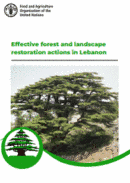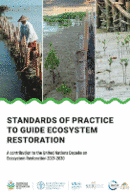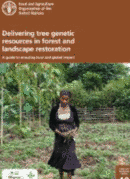Deforestation and land degradation threatens the livelihoods, wellbeing, food, water, energy security and resilience of millions of people around the world. Over two billion hectares of land – an area the size of South America – are currently degraded, with a resulting loss of fertile soils, biodiversity and carbon stock. The Forest and Landscape Restoration Mechanism (FLRM) is working to help countries restore degraded landscapes by identifying and implementing practices that restore a balance of the ecological, social and economic benefits of forests and trees within a broader pattern of land uses. [Read More]
Countries receiving FLRM support - Interactive Map
Highlights

The UN Decade Task Force on Best Practices
To boost actions for the implementation of the UN Decade on Ecosystem Restoration, an FAO-led Taskforce on Best Practices was established. The Taskforce is a collaborative effort focused on providing guidance and supporting knowledge dissemination and capacity development efforts for effective ecosystem restoration. With more than 400 members, the Taskforce gathers expertise in all ecosystems and connects all players with a stake in restoration. [More]

The Restoration Initiative (TRI) Programme
TRI unites 11 countries in order to contribute to the restoration and maintenance of critical landscapes to provide global environmental benefits and enhanced resilient economic development and livelihoods. TRI was officially launched in November 2016, and has since continued its efforts to restore landscapes at both the national and global levels, and be involved with other initiatives seeking to do the same. [More]

International Climate Initiative (IKI) Programme
The FLRM will be providing technical assistance for “The Paris Agreement in action: upscaling forest and landscape restoration to achieve nationally determined contributions”. This initiative stems across Asia, the Mediterranean and the Middle East, and be implemented at the local and global levels. [More]

.png)
.png)

.jpg)


